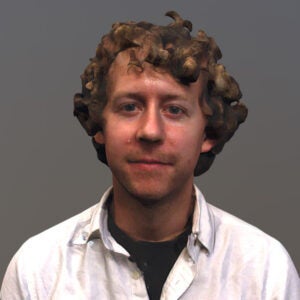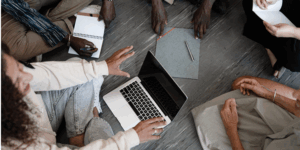
On Demand
$0.00
Introduction to Photogrammetry: Capturing Your World in 3D
This on demand course features course content from the Knight Center for Journalism in the Americas‘ massive open online course (MOOC) titled “Introduction to photogrammetry in journalism: Capturing your world in 3D”. The four-week course took place from June 27 – July 24, 2022.
We’ll spend the next four weeks learning how useful photogrammetry is for capturing three-dimensional digital replicas of landscapes, structures, and objects for immersive three-dimensional immersive journalism and forms of storytelling.
Goals
For the next four weeks, you will learn…
- What photogrammetry is and how the process works
- When to use photogrammetry to complement your journalistic work
- How to do basic photogrammetry capture and processing
- How to do basic publishing of photogrammetric 3D models
- Two-dimensional applications of photogrammetry
Objectives
Upon completion of this course you will be able to add photogrammetry to your digital journalism toolbox and possess introductory-level knowledge of the photogrammetric process to put toward your own projects.
Introduction Module: Welcome to the course
This module provides a video introduction to the course, outlining the topics covered in the four modules. After watching the video, please explore the rest of the introductory materials, including the syllabus, information about optional tools, and recommended readings.
This module will cover:
- An introduction to how the photogrammetry capture process works through two use cases
- An introduction to how photogrammetry is used for augmented reality storytelling
- An introduction to the mapping potential of drones and photogrammetry
Module 1: Introducing photogrammetry
The photogrammetry process dates back to 1849, and was originally used for map making. Today it’s still used for making maps, as well as many other types of two-dimensional and three-dimensional visuals. In this module we will explore how photogrammetry works, and see examples of how it is used in journalism and other industries.
This module will cover:
- The origins of photogrammetry
- A high level overview of the photogrammetry process from start to finish
- Inspiring journalistic use cases for photogrammetry
- Inspiring use cases of photogrammetry from other industries
Q&A with guest speaker Chad Davis, chief innovation officer From Nebraska Public Media in Lincoln, Nebraska.
Module 2: Strategizing: When and how to tell stories with photogrammetry
Like any tool, photogrammetry is great at performing some tasks and bad at others. In this module we will focus on the storytelling strengths of photogrammetry, and how they can best serve you and your storytelling needs.
This module will cover:
- Photogrammetry for immersive media and two-dimensional media
- Using photogrammetry for environmental and spatial storytelling
- Using photogrammetry for structural and object-based photogrammetry
Q&A with guest speaker Alexey Furman, freelance photojournalist, game designer, creative producer, and photogrammetry photographer.
Module 3: Introduction to photogrammetry capture
There is no better way to learn a new tool than to use it yourself. In this module we will cover some of the practical do’s and don’ts of photogrammetry capture with hand-held cameras and drones, including guided exercises using the Polycam app. We will also explore LiDAR technologies, and look at sources that use pre-existing photogrammetry and LiDAR data.
This module will cover:
- Planning and executing a handheld camera (or smartphone) photogrammetry shoot
- Planning and executing a drone-based photogrammetry shoot
- Open source datasets, crowd sourced data sets, and collaborative projects
- An introduction to LiDAR technologies and open source LiDAR datasets
Optional: Students can use a two-week free trial of Polycam during this module.
Q&A with guest speaker Heather Richards-Risetto, associate professor of anthropology at the University of Nebraska-Lincoln.
Module 4: Introduction to photogrammetry processing and publishing photogrammetric content
In this final module we will go through the processing stage of photogrammetry, and see how the photogrammetric content we’ve made can be quickly shared with audiences. We will also step back and consider how photogrammetry is a foundational process and tool within the broader context of emerging 3D technologies and platforms.
This module will cover:
- Photogrammetry processing tools
- Basic content delivery and distribution
- Looking to the future: volumetric video, the metaverse etc.
Q&A with guest speaker Faine Greenwood, UAS consultant and senior spatial data scientist at MassDOT’s Drone Pilot Program.

Ben Kreimer is a creative technologist working on enduring journalistic and communications applications for drones, 360° video, photogrammetric 3D reconstructions, spatial audio, volumetric video, and other emerging and emerged media technologies. Through global collaborations with journalists, scholars, students, artists, mission-driven organizations, and businesses, he focuses on democratizing access to hardware and software tools, including the use of open-source platforms and low-cost hacks and materials.
As BuzzFeed Open Lab Beta Fellow in 2015, he designed open-source 3D printed 360° camera kits for reporters and co-produced many of BuzzFeed’s early 360° videos. The first received over 6 million views. Ben has consulted on multiple National Science Foundation funded projects, and done interdisciplinary work with Columbia University’s Tow Center for Digital Journalism, the Ford Foundation, USC Annenberg, the University of Nebraska’s Johnny Carson Center for Emerging Media Arts, Georgia Tech’s School of Building Construction, The Times of India, Australia’s Department of Foreign Affairs and Trade innovationXchange, CCTV Africa, African Wildlife Foundation, Antiochia ad Cragum Archaeological Research Project, Drone Journalism Lab, and other international organizations.
Ben has presented his work globally at conferences, including Media Party Africa and the Digital Innovators’ Summit in Berlin, and universities, including Daystar University (Nairobi), the University of Hyderabad, NYU, Yale, Stanford, and Harvard. He has given media and technology workshops at the Poynter Institute for Media Studies, University of Oregon, NBOstorylab in Kenya, and Electric South’s AR/VR Lab in Cape Town and elsewhere. He is a 2019 Forbes 30-Under-30 honoree for his contributions to the media industry.
National Public Radio, Al Jazeera, the Washington Post, and other global media outlets have covered his work.

Knight Center for Journalism in the Americas
300 West Dean Keeton
Room 3.212
Austin, TX, 78712
Phone: 512-471-1391
Email: journalismcourses@austin.utexas.edu



